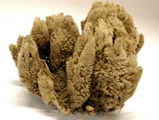


Qualified staff are encouraged to apply for the jobs below, or forward to others who might be interested. Go here to see a full listing of open positions.
Quality Assurance/Control Group (Genomics) Serve as a technical group leader and provide multifunctional technical support as well as lead and manage the day-to-day activities of the group.
Software Developer (Genomics) Identify client needs and gather requirements to maintain existing software systems that support production sequencing operations and management goals.
EUV Microscopy Postdoc (Materials Sciences) Join EUV-lithography mask-imaging team on a high-visibility project, utilizing a unique EUV zoneplate microscope on a synchrotron bending-magnet BL.
Research Associate (Earth Sciences) Assist with ongoing lab projects on microbial systems relevant to areas of climate change.
Chemist Postdoc (Physical Biosciences) Employ chemical and biophysical characterization techniques to understand effect of ionic liquid pretreatment on lignocellulosic biomass.
![]() “Too hot not to cool down” is the way things usually work, but researchers led by Tonio Buonassissi of MIT stumbled upon just one of those crazy things: silicon, the mainstay of computer chips and solar cells, can exhibit a phenomenon called “retrograde melting.” Buonassissi’s team, working with Matthew Marcus at beamline 10.3.2 of the Advanced Light Source, and at Argonne’s Advanced Photon Source, found that silicon, ordinarily a solid below 1,414 degrees Celsius, turns to a slush-like mix of solids and liquids as it cools below 900 C, provided it’s compounded with the right concentrations of dissolved copper, nickel, and iron. More>
“Too hot not to cool down” is the way things usually work, but researchers led by Tonio Buonassissi of MIT stumbled upon just one of those crazy things: silicon, the mainstay of computer chips and solar cells, can exhibit a phenomenon called “retrograde melting.” Buonassissi’s team, working with Matthew Marcus at beamline 10.3.2 of the Advanced Light Source, and at Argonne’s Advanced Photon Source, found that silicon, ordinarily a solid below 1,414 degrees Celsius, turns to a slush-like mix of solids and liquids as it cools below 900 C, provided it’s compounded with the right concentrations of dissolved copper, nickel, and iron. More>
 [UPI] UC Berkeley scientists — including Daniel Rokhsar of Berkeley Lab’s Genomics Division — say the gene sequence of sponges, the simplest and most ancient of animals, could provide clues to how multi-cell animals and cancer developed. "Our hypothesis is that multicellularity and cancer are two sides of the same coin," Rokhsar said. "If you are a cell in a multicellular organism, you have to cooperate with other cells in your body, making sure that you divide when you are supposed to as part of the team," he said. "The genes that regulate this cooperation are also the ones whose disruption can cause cells to behave selfishly and grow in uncontrolled ways to the detriment of the organism." More>
[UPI] UC Berkeley scientists — including Daniel Rokhsar of Berkeley Lab’s Genomics Division — say the gene sequence of sponges, the simplest and most ancient of animals, could provide clues to how multi-cell animals and cancer developed. "Our hypothesis is that multicellularity and cancer are two sides of the same coin," Rokhsar said. "If you are a cell in a multicellular organism, you have to cooperate with other cells in your body, making sure that you divide when you are supposed to as part of the team," he said. "The genes that regulate this cooperation are also the ones whose disruption can cause cells to behave selfishly and grow in uncontrolled ways to the detriment of the organism." More>
 Research: ESnet Seeks Proposals for Experiments Using ANI Testbed
Research: ESnet Seeks Proposals for Experiments Using ANI Testbed Want to try out some new ideas in network research? ESnet is now accepting proposals to run experiments on its reconfigurable testbed. ESnet’s ARRA-funded Advanced Networking Initiative testbed is a high-performance environment where researchers will have the opportunity to prototype, test and validate cutting-edge networking concepts. The testbed will support research including multi-layer multi-domain hybrid networks, network protocols, component testing for future capabilities, protection and recovery, automatic classification of large bulk data flows, high-throughput middleware and applications, and other innovative ideas in a realistic network environment, but with no risk of breaking anything. Proposals are due Oct. 1. More>
The Lab’s Nuclear Science Division is hosting the Nuclear Structure 2010 meeting this week at UC Berkeley’s Clark Kerr campus. The scientific program is devoted to the latest research and developments in nuclear structure physics, in particular the properties of nuclei at the extremes of isospin, mass, angular momentum, and excitation energy. Lab employees are invited to attend. More>
A poster session will be held today from 3 to 5 p.m. in the Cafeteria and Perseverance Hall. The Lab's Center for Science & Engineering Education will feature the work of 116 undergraduate students who have spent their summer participating in the Lab’s mentored internship programs. Refreshments will be served.
There will be a brief outage to the eBuy system and to FMS Query processing this afternoon at 4 p.m. to install additional RAM memory into one of the FMS servers. This outage is expected to last no more than 30 minutes.
Today
at Berkeley Lab encourages feedback and story ideas
Deadline for submissions is 10 a.m. two days prior to publication
TABL is produced by Public Affairs' Communications Group